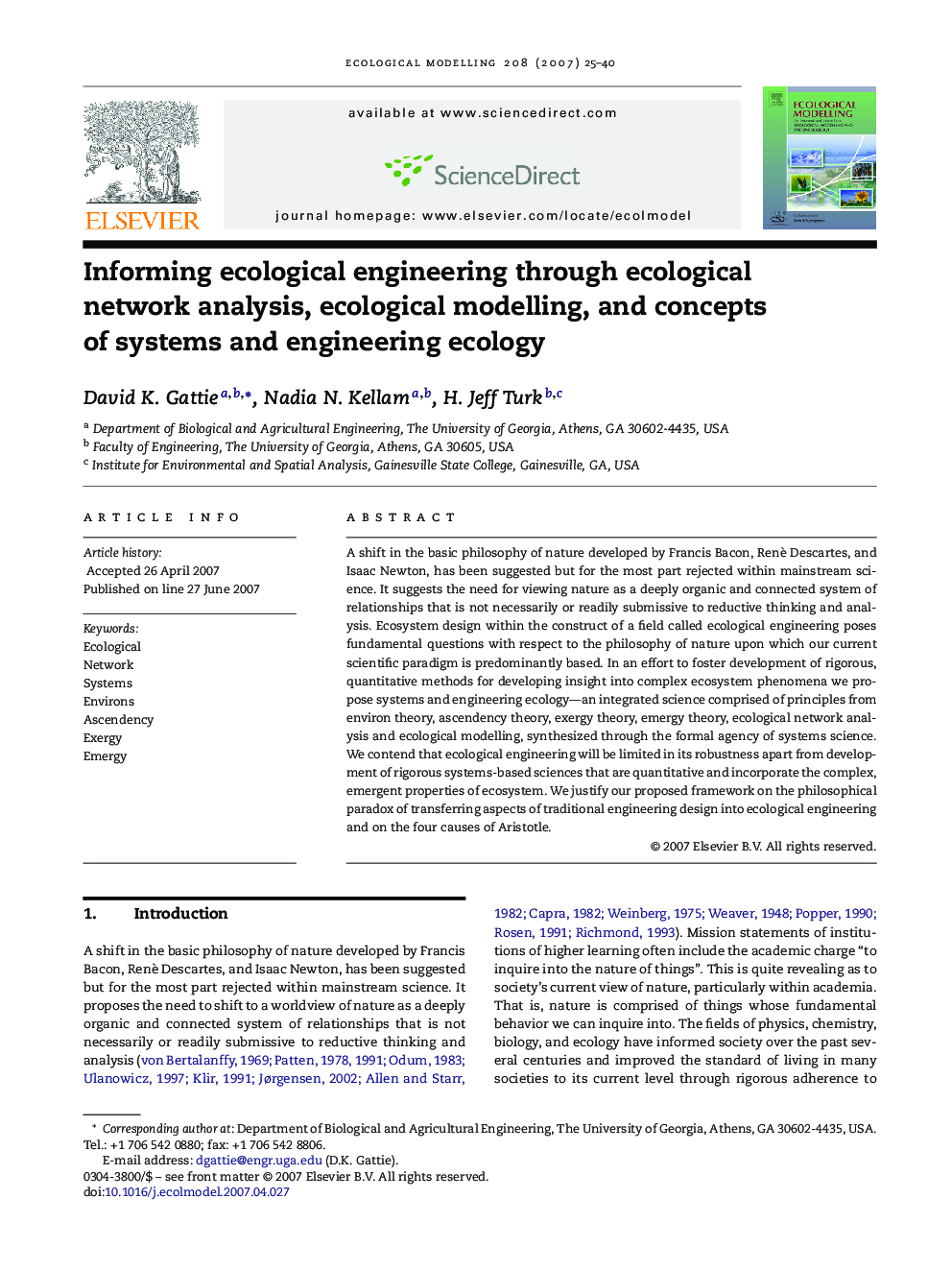| Article ID | Journal | Published Year | Pages | File Type |
|---|---|---|---|---|
| 4378629 | Ecological Modelling | 2007 | 16 Pages |
A shift in the basic philosophy of nature developed by Francis Bacon, Renè Descartes, and Isaac Newton, has been suggested but for the most part rejected within mainstream science. It suggests the need for viewing nature as a deeply organic and connected system of relationships that is not necessarily or readily submissive to reductive thinking and analysis. Ecosystem design within the construct of a field called ecological engineering poses fundamental questions with respect to the philosophy of nature upon which our current scientific paradigm is predominantly based. In an effort to foster development of rigorous, quantitative methods for developing insight into complex ecosystem phenomena we propose systems and engineering ecology—an integrated science comprised of principles from environ theory, ascendency theory, exergy theory, emergy theory, ecological network analysis and ecological modelling, synthesized through the formal agency of systems science. We contend that ecological engineering will be limited in its robustness apart from development of rigorous systems-based sciences that are quantitative and incorporate the complex, emergent properties of ecosystem. We justify our proposed framework on the philosophical paradox of transferring aspects of traditional engineering design into ecological engineering and on the four causes of Aristotle.
